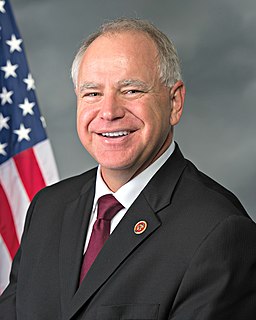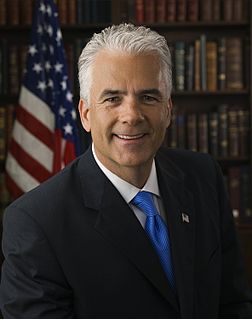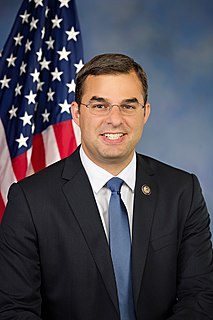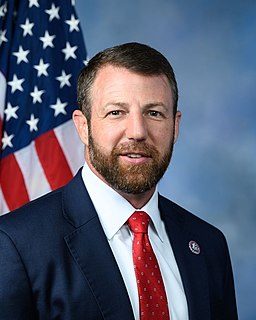A Quote by Tim Walz
The budgets we work on in Congress are more than just fiscal documents; they are a reflection of our moral values as well. In choosing where to spend money, members of Congress choose what priorities they value.
Related Quotes
Too many members of Congress are too involved in grabbing what they can for their states or districts without enough emphasis on overall fiscal restraint for the sake of the nation as a whole. We need a new era of fiscal sanity. I am not willing to subject my children and grandchildren to the level of debt that Congress has created.
The greatest threat facing America today
is the disastrous fiscal policies of our own government,
marked by shameless deficit spending and
Federal Reserve currency devaluation.
It is this one-two punch -
Congress spending more than it can tax or borrow,
and the Fed printing money to make up the difference -
that threatens to impoverish us by further
destroying the value of our dollars.
We must not permit our respect for the dead or our sympathy for the living to lead us into an act of injustice to the balance of the living. I will not attempt to prove that Congress has no power to appropriate this money as an act of charity. Every member upon this floor knows it. We have the right as individuals to give away as much of our own money as we please in charity; but as members of congress we have no right to appropriate a dollar of the public money.
In recent years, Republicans have argued that Congress is a more responsible policymaker than the executive branch. But when it comes to regulation, Congress is often much worse, and for just one reason: Executive agencies almost always focus on both costs and benefits, and Congress usually doesn't.
The money problem facing the country from 1789 to 1896 existed because Congress never exercised is authority to "coin money or regulate the value thereof" - but rather delegated that authority, sometimes by charter and sometimes by default, to the banking system. This despite the provision in the Constitution that charged Congress with the power to 'coin money, regulate the value thereof, and of foreign Coin, and fix the Standards of weight and Measures.'

































